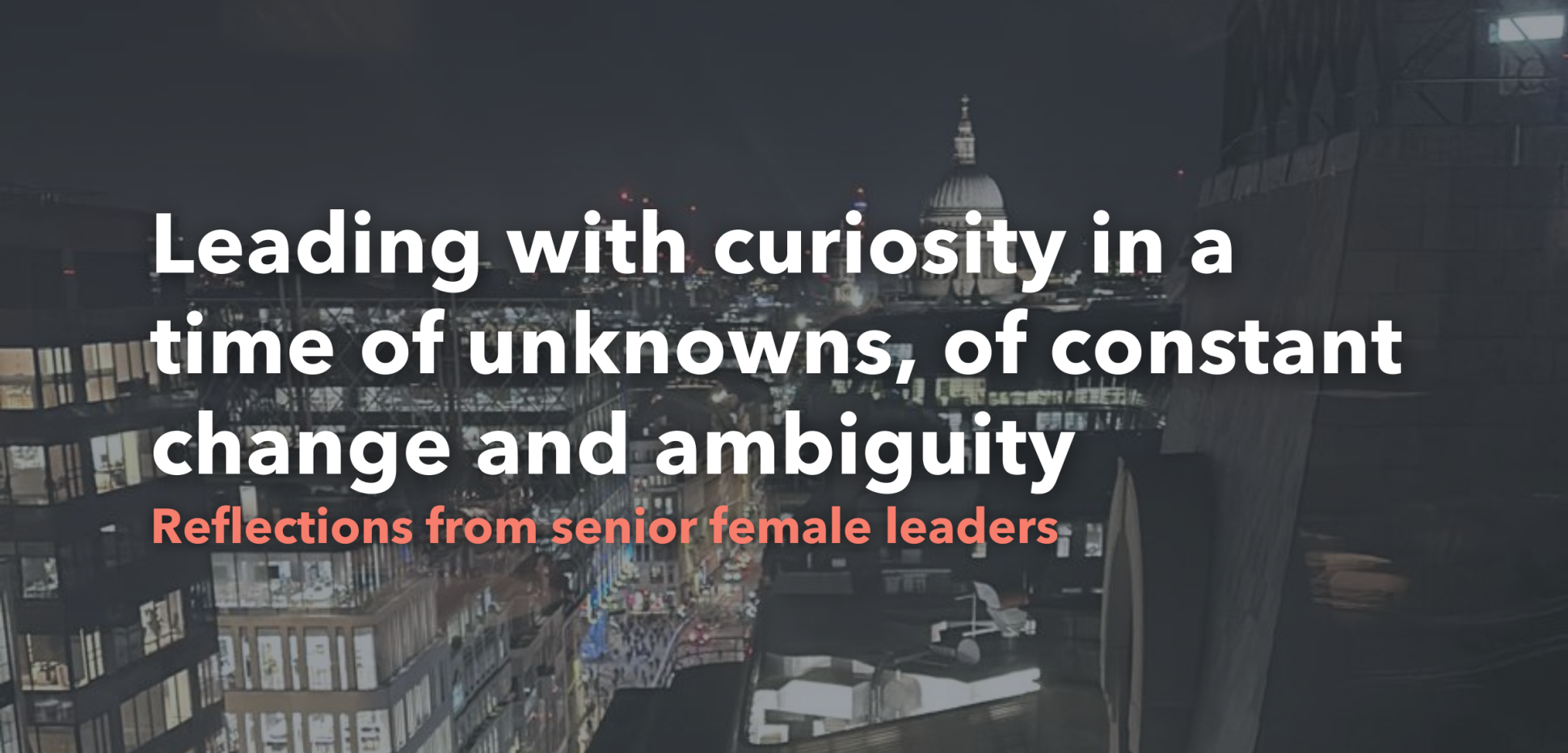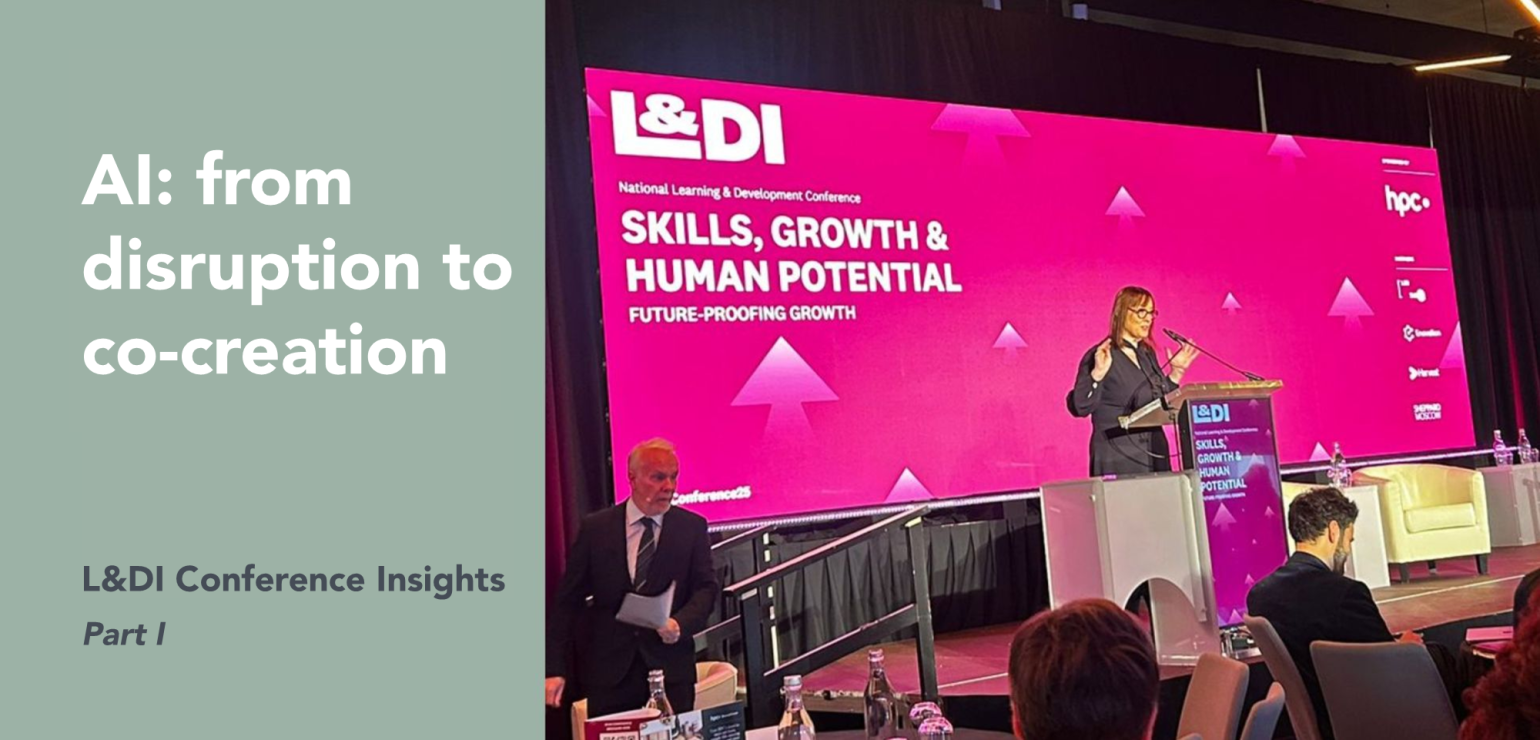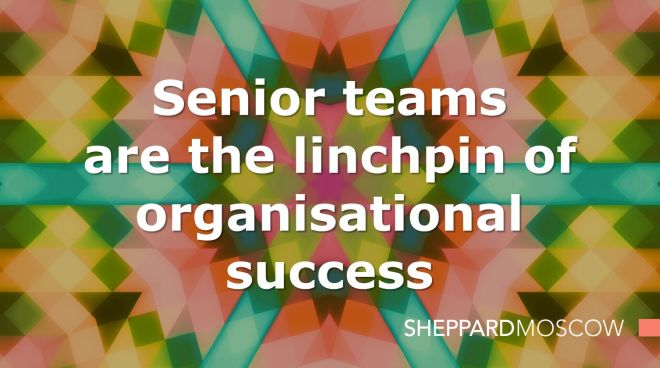Women in leadership collective

With every meeting and interaction this year, we have found the overwhelming tone to be one of curiosity. Perhaps a sign of our growing adaptation to evolving complexity; this curiosity shared with senior leaders from across sectors has generated fascinating conversation and more questions than answers…
In January Sheppard Moscow partners Ally Salisbury and Deborah Gray, convened a dinner with senior leaders from organisations across industry – they were also all women. As Deborah put it, this was an opportunity for a group of senior leaders to connect in a different kind of environment, an informal and safe space. Over the round table in a turret at the beautiful Wagtail Restaurant, in the centre of London, leaders from a range of sectors – professional services, private equity, asset management, development finance and transport – shared in open and intellectually stimulating conversation. There was a distinct warmth in the room and quick affinity, conversation on knotty real-world problems aided by good humour, humility and a willingness to learn.

The conversation began with a provocation around curiosity, what’s the ‘unknown’ that’s preying on leaders’ minds?
Off the bat responses were around artificial intelligence, as much around the concerns as with the opportunity. However, although AI might preoccupy ours and the media’s attention, the meat of the conversation pivoted to more immediate human questions – particularly the debate around the ‘Return to the Office’. The tail of the pandemic is a long one, and organisations are still very much in the thick of dealing with its consequences.
During the pandemic, most organisations had to go fully virtual and many committed to being location-agnostic early on. But today a wholly virtual workforce isn’t necessarily yielding all of the outcomes businesses had hoped for – or at the very least, many of the benefits are being countered by new challenges and consequences. Leaders are navigating a way to balance the needs of people who are appreciative of the opportunity to work from home with the organisational need to build cohesive, integrated teams, to stimulate creativity and to enable the social intelligence to grow in an organisation that can often only happen face to face.
More broadly, we are seeing organisations mandating a slow return to the office, but how should leaders and organisations navigate this?
No one knows. No one has the answer, and being open to not knowing is such an important quality in a modern leader – as long as they’re also willing to experiment.
In Sheppard Moscow, we have conducted a 5-year experiment of being wholly virtual, with intentional, committed face to face ‘collaboration days’ to maintain team connection and being able to work together. It suits us and our team members’ needs now, but like others we do not know what the long term holds. So, we need to continually review both the benefits and the costs.
As we reflected on our changing employees’ needs, our conversation then turned to evolutions in our employee psychological contracts; Sally Nelson, Chief People Officer at Fidelity International was a part of the leadership collective at the dinner. She shared Fidelity International’s innovative Family Care policy; allowing for up to five days paid leave to help employees support family members through a range of different scenarios. This policy acknowledges that almost everyone is touched by the need to care, whether for children, parents or other family members, and it really felt like the organisation was ‘seeing’ what employees need. Policies like this recognise what people are juggling, demonstrate a willingness to help and in turn reinforce a strong EVP (employee value proposition).
Being creative with benefits, demonstrating empathy, and decency at an organisational level led us to discuss the critical role of a strong EVP in attracting talent. Gen Z employees are less likely to be motivated by the same collection of benefits as previous generations. Professional services and law firms are seeing that the prospect of becoming a partner is not the golden goal it once was, as Gen Z place greater value on work-life balance and purposeful work than the generations before (Deloitte). We are looking ahead to considerable change in the workforce, driven in part by Gen Z’s willingness to advocate for themselves and Gen Alpha’s upcoming entrance into the workforce, so leaders must strategically consider their EVP with foresight of a different working landscape.
This was a multidimensional conversation about business issues and how different organisations and the leaders of those organisations are navigating them. It was also a lot about what people don’t know, no one has all the answers which speaks to the VUCA (volatile, uncertain, complex, ambiguous) world we continue to work in. Feedback from those around the table demonstrated a desire to nurture these relationships and continue the conversation. Ally and Deborah held the evening lightly, allowing people to talk about what they needed to talk about – a very Sheppard Moscow approach!
The conversation was focused on holistic leadership questions but with the informality, engagement, female energy and the palpable power of convening curious leaders. This dinner is the start of something. Ally is keen to host and convene future dinners with a wide range of client, private and public sector leaders. The power of this collective, learning from each other and witnessing the germination of a new network was inspiring. Thank you to all who attended and offered their experience, insight, and good company.

 Ally Salisbury
Ally Salisbury  Deborah Gray
Deborah Gray 
 Aoife Keane
Aoife Keane 
